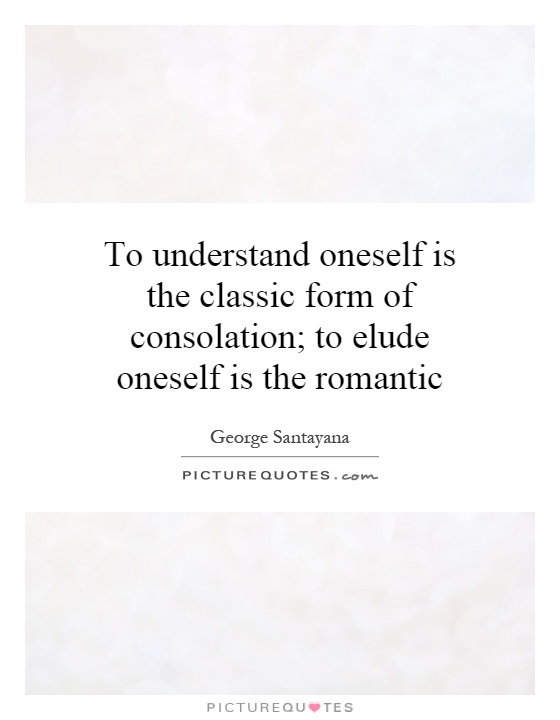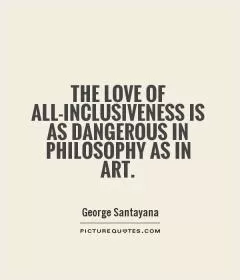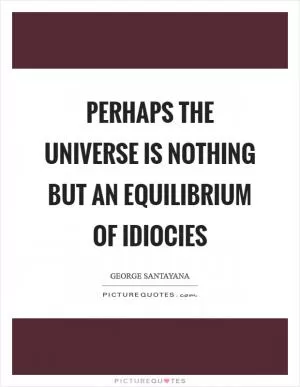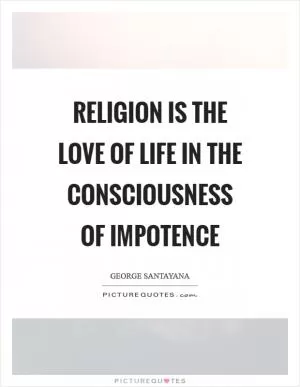To understand oneself is the classic form of consolation; to elude oneself is the romantic

To understand oneself is the classic form of consolation; to elude oneself is the romantic
George Santayana, a Spanish-American philosopher, poet, and novelist, is known for his profound insights into human nature and the complexities of the human experience. One of his most famous quotes, "To understand oneself is the classic form of consolation; to elude oneself is the romantic," encapsulates the idea that self-awareness and self-acceptance are essential for finding peace and contentment in life.Santayana believed that true happiness and fulfillment come from knowing oneself fully and embracing one's strengths and weaknesses. By understanding our own motivations, desires, and fears, we can navigate life's challenges with clarity and purpose. This self-awareness allows us to make informed decisions, set realistic goals, and cultivate meaningful relationships with others. In essence, self-understanding is the key to inner peace and contentment.
On the other hand, Santayana also recognized the allure of self-deception and escapism. The idea of "eluding oneself" suggests a romanticized view of reality, where we choose to ignore or deny our true selves in favor of a more idealized version. This can manifest in various ways, such as denying our flaws, avoiding difficult emotions, or living in a fantasy world detached from reality.
While the romantic approach may provide temporary relief from life's hardships, it ultimately leads to a sense of disconnection and dissatisfaction. By avoiding self-reflection and introspection, we miss out on the opportunity for personal growth and self-improvement. In the long run, eluding oneself only serves to perpetuate feelings of emptiness and disillusionment.












 Friendship Quotes
Friendship Quotes Love Quotes
Love Quotes Life Quotes
Life Quotes Funny Quotes
Funny Quotes Motivational Quotes
Motivational Quotes Inspirational Quotes
Inspirational Quotes